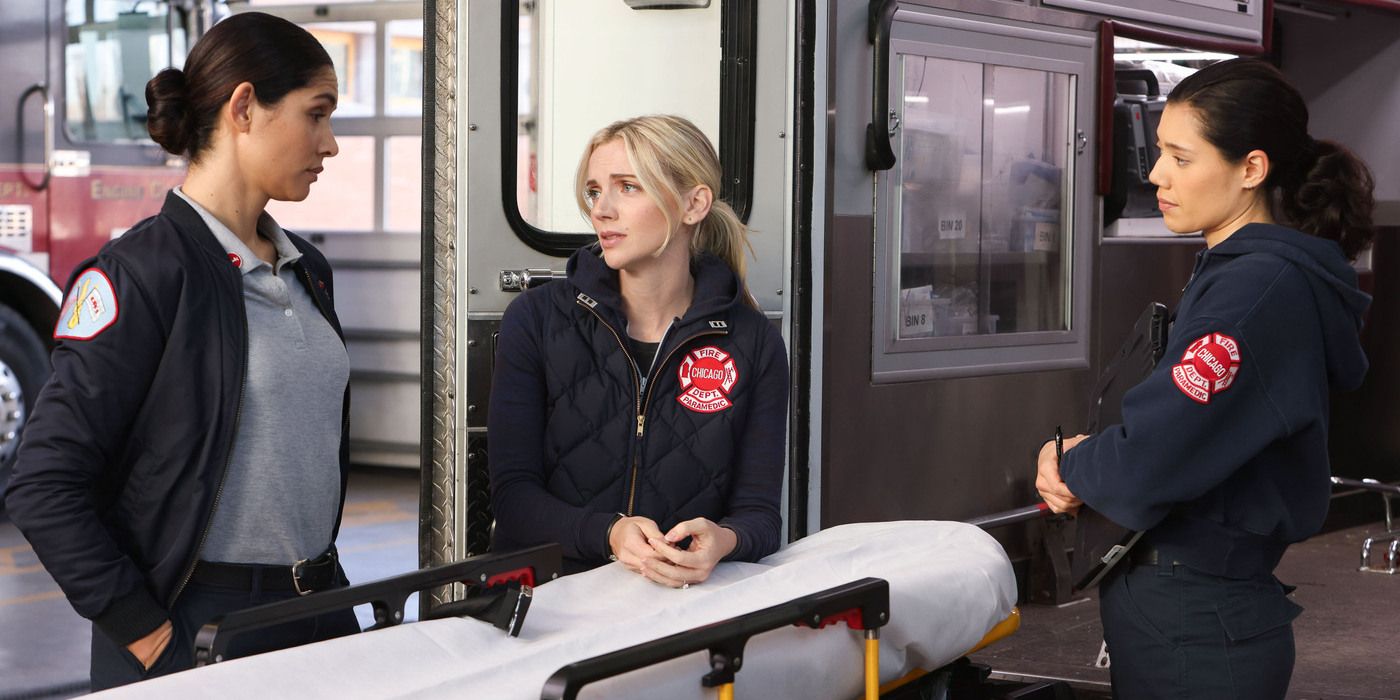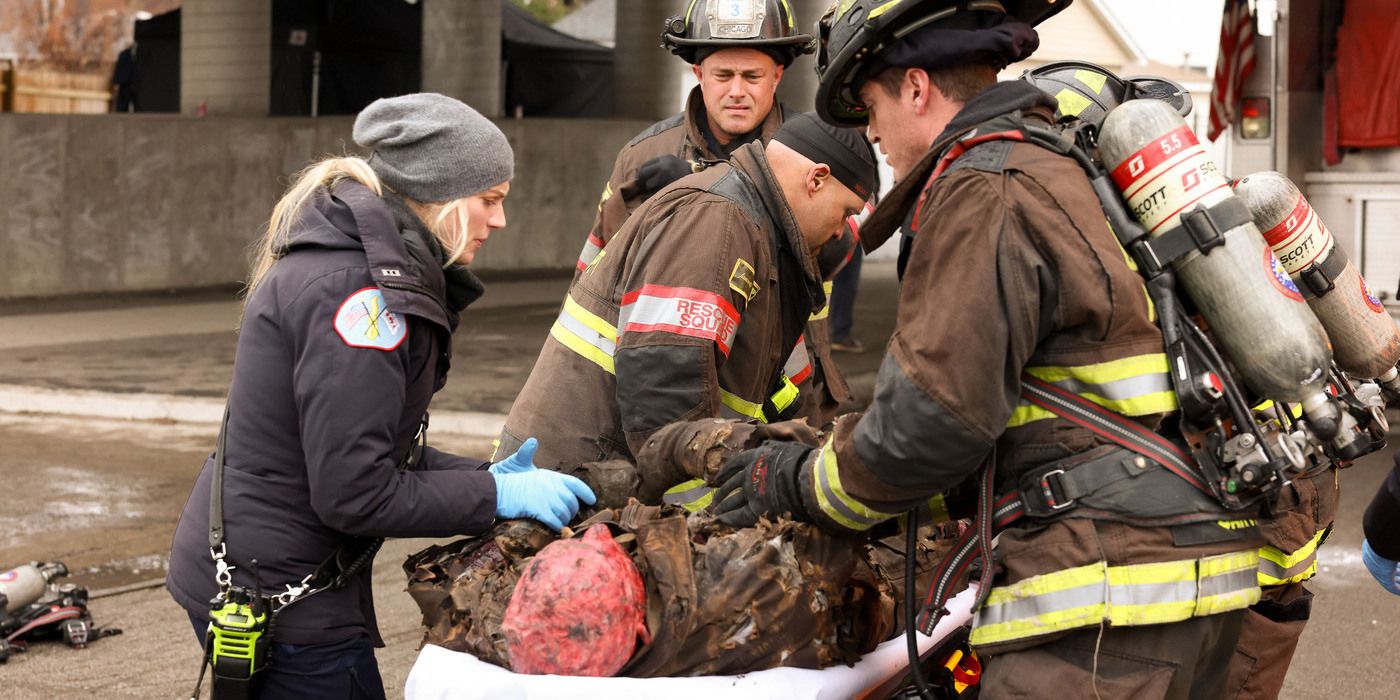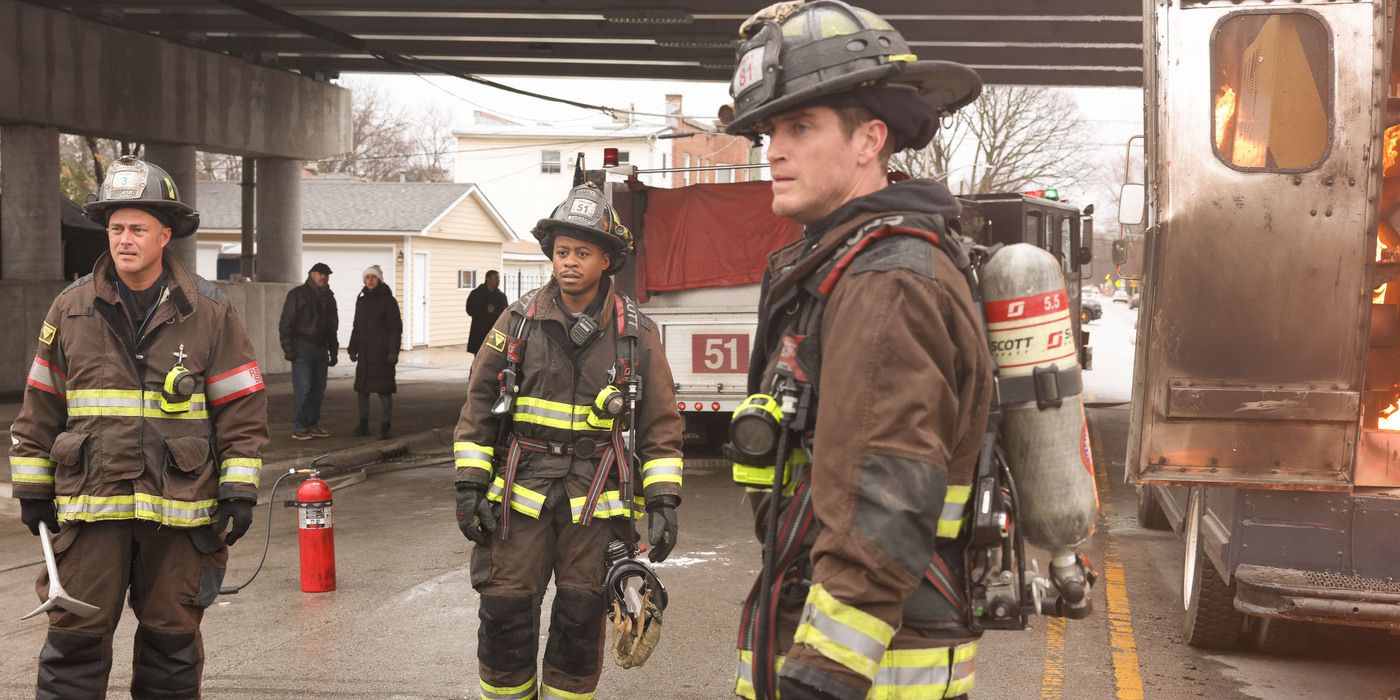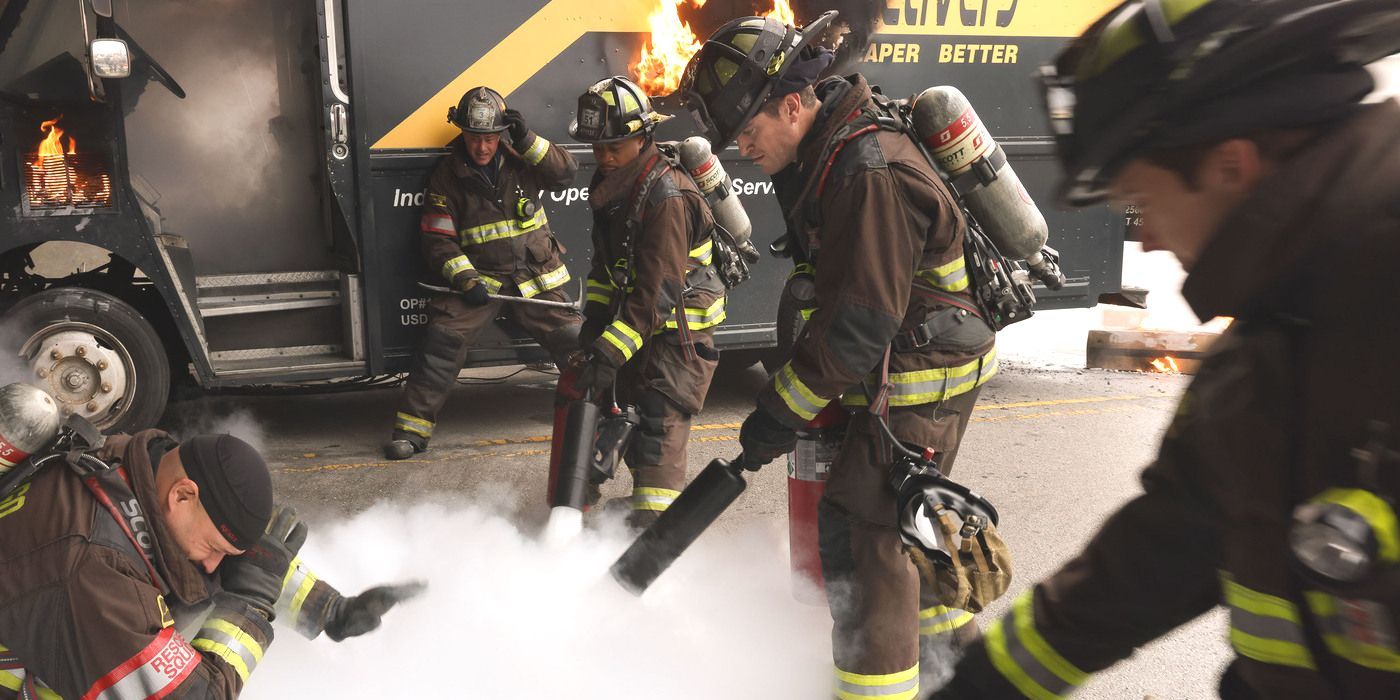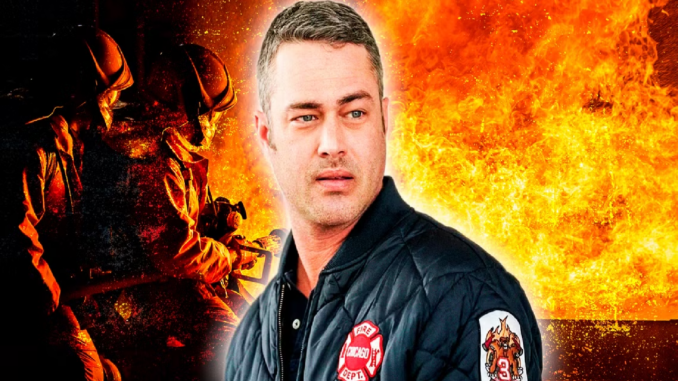
The Chicago Fire Season 12 premiere is somewhat overshadowed by everything that’s happened off-screen. The NBC drama dealt with the absence of actor Taylor Kinney while he attended to personal matters, while between seasons it was announced that two more stars would be leaving the series permanently. Plus, the entertainment industry strikes resulted in an extended hiatus for most of television. As such, when One Chicago fans tune into Season 12, they’re thinking as much about behind the scenes as they are the on-screen cliffhangers.
For those who don’t remember: the fate of veteran firefighter Randall “Mouch” McHolland was once again left up in the air, while paramedic Sylvie Brett was shocked to see ex-boyfriend Matthew Casey on her doorstep, with an engagement ring in hand. Kinney’s return to Chicago Fire was confirmed in November 2023, so Kelly Severide’s status is no longer a question mark, but “Barely Gone” is an example of writers doing their best to write around (and toward) what an audience already knows — and they do a pretty good job.
There’s been a six-month time jump for the entire One Chicago franchise, so “Barely Gone” makes the decision to answer every lingering question fans have in under five minutes. The almost standard show open — checking in on Firehouse 51 before a call-out that starts the story of the week — is packed with character updates, including whether or not Mouch survived and if Brett accepted Casey’s proposal. In one sense, that feels like taking all the suspense out of the episode too early, racing through beats that could have been bigger. But it’s also an incredibly efficient way to catch viewers up, since the Season 11 finale that started all those plot threads aired half a year ago.
Longtime viewers know that Chicago Fire is no stranger to leaving viewers waiting between seasons. Series co-creator and now-former showrunner Derek Haas was an expert at setting up a massive, usually life-threatening cliffhanger to keep fans worrying over hiatus. Yet there’s so much on the table going into Season 12 that to space all those answers out would take up the whole premiere on its own, on top of the premiere also having to establish what the current season is going to look like. With that in mind, “Barely Gone” can be forgiven for feeling rushed a large portion of the time. When the episode is able to slow down, though, that’s when it shines and reminds viewers why the series has been so successful for so long.
The plots of the week are both familiar: a suspicious fire and Firehouse 51 having to deal with other firefighters that they don’t completely get along with. The former provides a good way to reintegrate Severide, who’s carved out a niche on the show (and in the whole fire department) as an arson investigator. Of course he’s going to be center stage in any suspicious fire plot, and the episode even somewhat explains Severide’s going AWOL in Season 11 — a plot point mandated by Kinney’s extended absence. It felt out of character for Severide to ghost his wife Stella Kidd at the time, but “Barely Gone” reframes that by Stella pointing out he’s getting in too deep with arson work. That makes more sense given his stubbornness and his potential to follow in his late father Benny’s footsteps. There’s still plenty for Stellaride shippers (including an episode-opening shower scene), yet the audience also gets to see them work on their relationship.
The series also has to address its two cast departures in the premiere. Rumors about Kara Killmer leaving Chicago Fire were circling for over a year before it was confirmed that Season 12 will be her final season, and it was subsequently announced that Alberto Rosende had chosen to depart, too. One of the downsides of the entertainment news cycle is that fans often find out about actors leaving their favorite TV shows well before it happens — thus taking away from the surprise or feeling of the actual goodbye. One Chicago fans almost immediately predicted that Brett and Casey would get engaged as a way of writing Brett out, so that’s no shocker. But Rosende fares very well in his final scene as Blake Gallo, returning with little fanfare to say farewell to his now ex-colleagues, especially his best friends Violet Mikami and Darren Ritter. As with Kinney, “Barely Gone” finds an angle to turn Rosende’s status change into something positive. When Gallo starts talking excitedly about the new family he’s found, it’s the perfect way to send off a character whose defining bit of backstory was the family he lost.
The scene doesn’t go on very long, but the emotion between Rosende and co-stars Hanako Greensmith and Daniel Kyri is palpable and carries the moment. It’s particularly wrenching to see Violet get choked up at Gallo’s departure; these were two characters who started out as rocky exes and developed a strong friendship, with some viewers even wondering if they might get back together romantically after the death of Violet’s boyfriend Evan Hawkins. (“Barely Gone” drops several pretty strong hints about pairing her up with Jake Lockett’s character Sam Carver, which viewers likewise have been speculating about.) There’s so much left untapped in the Violet and Gallo dynamic, and the writers likewise make the best of a bittersweet situation by using Gallo’s departure as a reason for Violet to open up to Brett. Greensmith helped provide stability in the Chicago Fire cast after the relatively short-lived stints of Annie Ilonzeh and Adriyan Rae, and it will be worth following along to see how the show sets her up for future success, now that she’s lost one of her primary scene partners and is soon to lose another one.
The real heroes in the Chicago Fire Season 11 premiere, though, are the remaining original cast members — particularly Kinney, Eamonn Walker and David Eigenberg. The theme of the episode is change, with Boden delivering a monologue on the subject. That idea reflects where the show is as a whole after the shakeups in Seasons 10 and 11, from Haas’ departure after helping launch the whole One Chicago franchise to Jesse Spencer finally leaving (mostly), Kinney’s time away and now Killmer and Rosende heading out the door. When Mouch tells Boden that Firehouse 51 “doesn’t feel the same,” it feels like he’s speaking for the audience. (One criticism that must be levied is that the show has almost written off Mouch too many times now, between his multiple near-death experiences and past ideas of retirement — as a result, Mouch’s comments about everything he did to come back don’t have much impact. He always finds a way to come back.)
Kinney doesn’t seem like he’s missed a beat, conveying Severide’s conflict between wanting to help his marriage and wanting to do the right thing by chasing another investigation. Walker and Eigenberg are solid throughout, particularly in a scene when Boden comes across Herrmann anxiously standing alone by a firehouse radio. That scene shows how both actors are tentpoles of Chicago Fire; they’re always there, just like their characters are always there for everyone who comes and goes. Eigenberg is always wonderful when he’s given opportunities to show Herrmann’s vulnerability… and then in true One Chicago fashion, Herrmann and Boden have a big action scene just minutes later. The action makes for cooler ads and creates excitement, but what keeps Chicago Fire worth watching are those quiet moments where audiences get to truly see into the characters. Season 11 may have a lot to work through, but “Barely Gone” mitigates that by refocusing on the heart within Firehouse 51.
